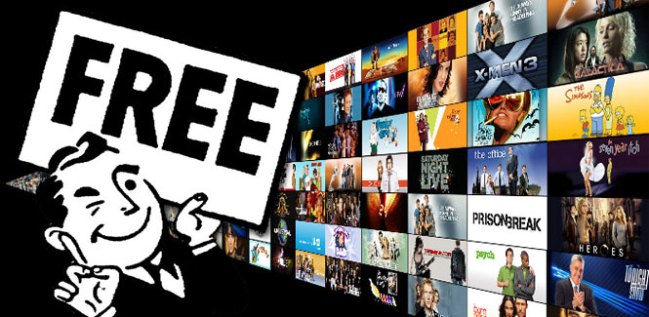
Did your father ever tell you there’s no such thing as a free lunch? Well, most of today’s industry experts would probably agree with him. The idea of “free” has become extremely controversial in the technology industry, especially in the case of online content. Rumors that favorite show streaming website Hulu will be charging for all of their content has most online-media-viewing junkies scared stiff. Sources for Hulu, after reaping the backlash of complaints, deny the rumors and say turning the service into a pay-only site is just not in the cards. Fair enough, but what happens when Hulu and other sites get desperate? Ad sales are down, magazines and newspapers aren’t selling, and people are only accessing “free” web content. Will these poor economic conditions and lack of advertising force more web publishers into a pay-only frenzy?
Our sources say no. Rafat Ali, Publisher and Editor of the online news site paidContent.org, thinks we’ve come full circle and things will start looking up for online news sites and businesses. The Hulu rumors have been circling for months and Ali thinks there may be a slight truth to all the madness. “If they’re going to charge, it will be for high-value content,” he says. “But realistically, Hulu will not change and the majority of the shows people are watching for free will remain free.” He thinks very few sites will be charging for their content, and if they do then it will be highly specialized content. Ali says that in 2002 people had the same scare and everyone thought they’d have to pay to access sites, but that was just a phase. “The market came back soon after and advertising picked up again,” he says. Ali sees the same forecast for today’s scenario.

Similarly, Outsell’s Affiliate Analyst Ken Doctor thinks America is seriously lacking good news sites and news stories because of our nation’s demand for fast and free content. “Americans are getting about 800,000 fewer news stories due to staff cuts,” he says. The mania surrounding free content is taking a toll on the readers. Doctor believes that today’s web content isn’t as high-quality as it should be because of our ubiquitous nature to publish “free” content. He says many people don’t realize that promoting free content is also promoting cheap, low quality content. “Free content only changed the distribution aspect of information, but the problem is the people making that content still need to get paid,” he claims.

In contrast, while Doctor says there are many solutions to this problem, he does not think Anderson’s is one of them. He thinks that accepting the mantra that free is the future and the only way to go is “just plain silly.” Of course, Doctor’s suggestions are not free. He thinks more news publishers should charge a “convenience fee” for their content accessed through mobile devices like eReaders and smartphones. “Chris Anderson seems to think this problem will work itself out, but obviously it’s not,” he says. “People are already used to paying for mobile services, so for news publishers and other Web content providers to start charging more mobility fees might be a more gradual solution.”
In defense of Anderson’s thesis, John Blossom, the author of Content Nation: Surviving and Thriving as Social Media Changes Our Work, Our Lives and Our Future, says Anderson merely “points out the basics of supply and demand” and that the fundamentals of what he’s talking about are “totally sound.” Blossom, President and Senior Analyst at Shore Communications Inc., says that Anderson clearly says in his book Free that artificial scarcity can still be a useful online tool. “To a certain level, Chris points out the fundamentals of economics and his argument can work to a certain extent,” says Blossom. “For example: I’ve been blogging for almost six years and I’ve actually gotten quite a few consulting contracts just from people reading and liking the free content on my blog.”

Furthermore, Blossom agrees that the economic downturn amplified pressures for online publishers to produce more paid access models and, he says, the number of these models can be expected to increase over the next few years. However, the websites that will have WSJ-status success will be the ones that can market something unique along with free content. The paid models that will struggle are those that lock down web content in a we-did-it-because-we-can type of fashion. According to Blossom, everyone wants to be part of a “scene,” and people will pay websites to be a part of the unique experience they can provide.
In a hopeful conclusion, Outsell’s Ken Doctor reports that advertising is coming back to the Web and that 2010 is looking far more stable and profitable. But, the mania surrounding the free content battle is far from over—some experts will say free is the future, while others disapprove. What we do know for certain is that, whether it’s free content or a free lunch, there will always be a basic human demand for “free” things.


